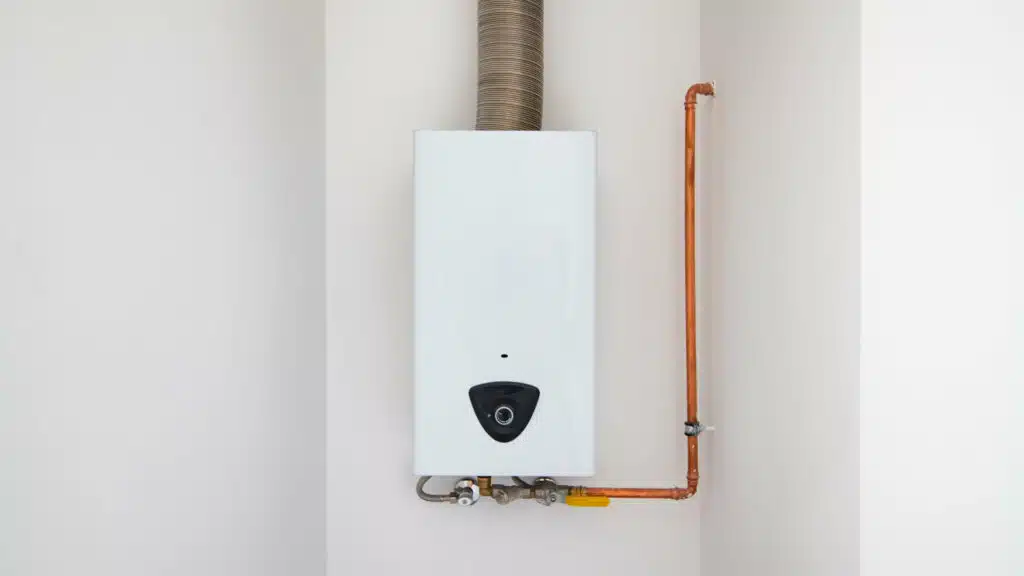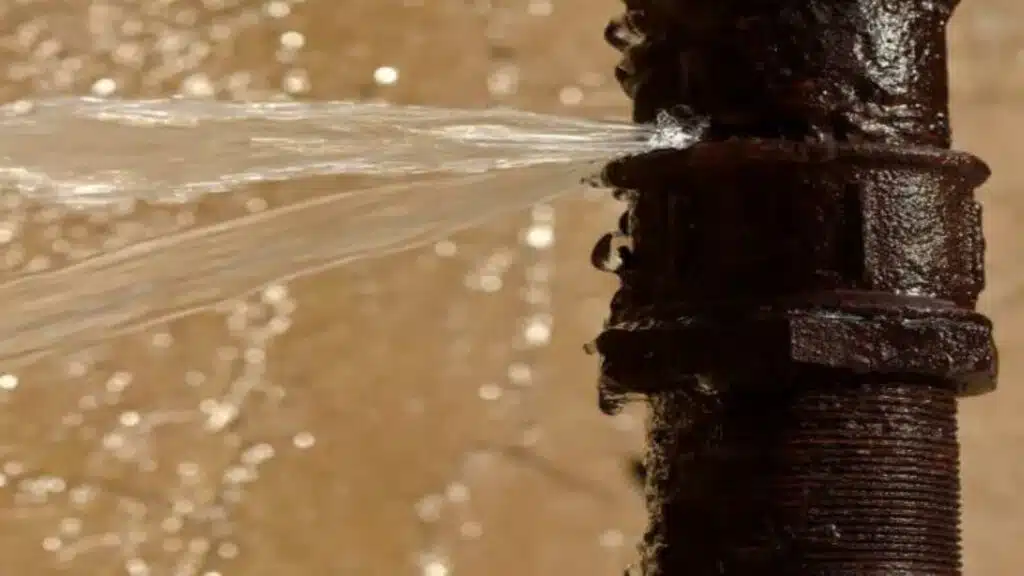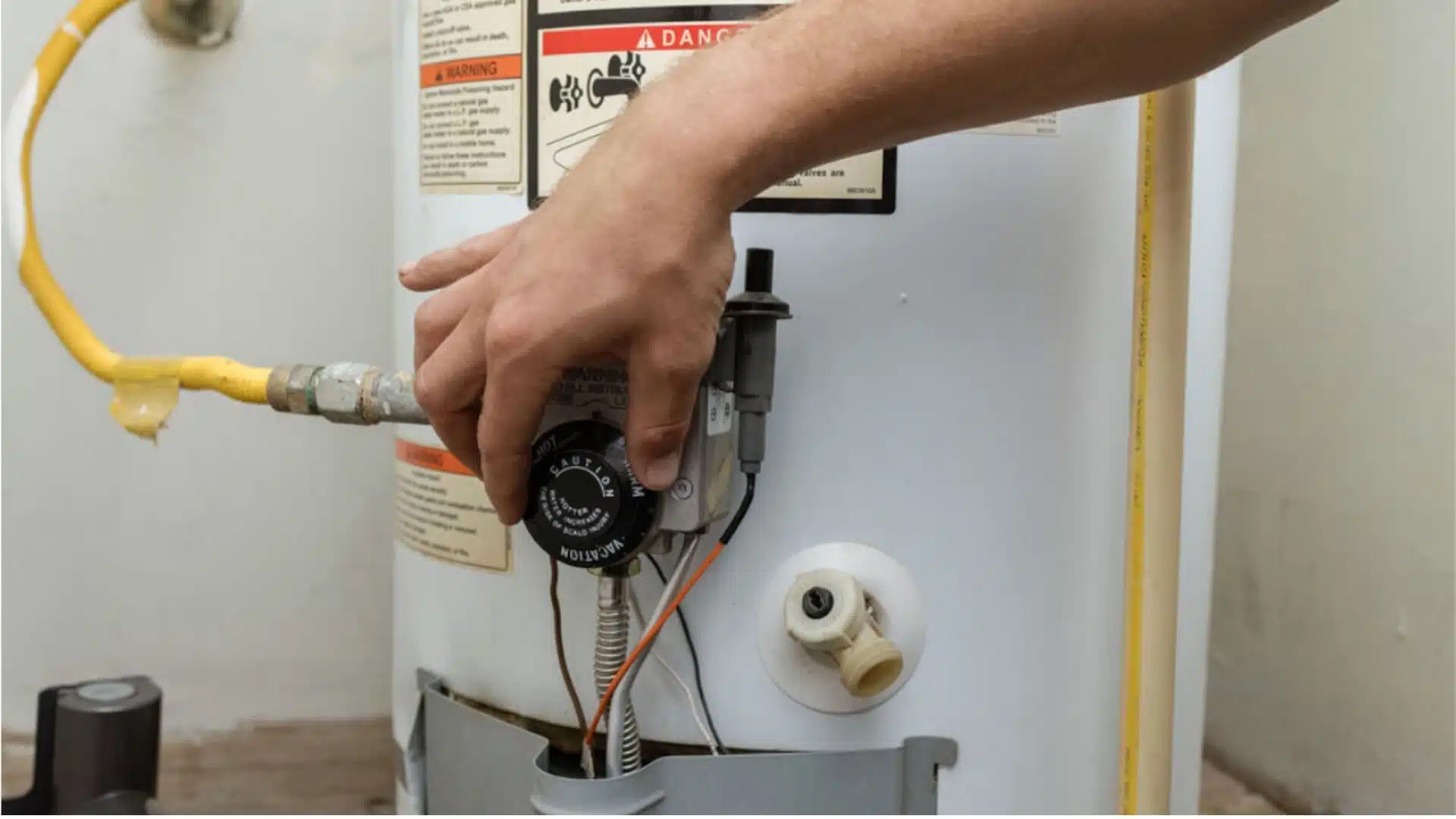

The T&P valve may have released pressure from your tank if you see a tiny pool of liquid next to your water heater. But why does a water warmer build up a lot of pressure in the first place? Water expands as it warms, raising the pressure inside the tank.
The safety features designed to keep your water heaters from causing harm or, worse yet, turning into a bomb will be discussed in this article along with the reasons why it might build up to a dangerous level of pressure. If you have any problems with your water heater, call 5 Star Plumbing and place an order for a water heater repair in Sacramento.
You can learn a great deal about your home’s hot water heater pressure by using an accurate pressure gauge, which we’ll talk about later. On the other side, your house will give you hints and signals that it’s time to have a proper evaluation.
You may tell if your home has increased water pressure by looking at the faucets. If faucet aerators and washers are frequently exposed to high liquid pressure, they will break down quickly. Leaking faucets are the main thing to look for, especially if they leak when another object, like your showerhead, is turned on.
A tap may burst or sputter when you turn it on for the first time. As an alternative, you might notice more water flowing out of your tap when it is fully turned on than usual.
If you have heard your pipes pop, it could be a sign of low water pressure in your heater. A water hammer occurs whenever a fast, powerful liquid flow stops. When you experience high water pressure, instantly turn off a faucet since it will cause your pipes to burst like a freight train. We might occasionally forget about water because it is such a strong natural force. It might be interesting for you to learn when to replace your pipes.
Your water heater’s appliance may notify you to pressure problems in several ways. The more obvious thing to watch out for is leaks. Washing machines and dryers, heating systems, and automatic dishwashers can all start to leak if exposed to high water pressures for an extended period.
They could leak in any way or not. They just lose their effectiveness with time and need to be replaced far sooner than they should.
You might have had significantly less time with an item than you anticipated because of damage brought on by high water pressure. The best place to start is to walk about the apartment turning on taps and listening for pounding liquid, but if you want to figure out what’s wrong with your plumbing, you’ll need some tools.
The force inside the water heater tank increases as a result of the expansion and space-filling nature of the hotted liquid. Thermal expansion is what is passing.
The warmer can have the same problem. When cold water in 50 liters warmer is hotted, there will be an expansion to at least 52 gallons, because of thermal expansion. The extra 2 liters will increase the press inside the warmer.
Because there is no room for the extra liter, the force inside the warmer grows as the temperature increases. This will lead to unpleasant power levels, and possibly the force resident in the heater could cause problems in your apartment, though the warmer’s safety systems are generally there to stop by and forestall an issue if anything goes wrong.
Three factors might cause your heater to be mounting a lot of pressure in your water heater. A malfunction, exorbitantly high reversal, or a lack of an expansion tank are all possible reasons.
It’s critical to a flashback that when the temperature raises, the force inside the warmer will be raised. Set the water warmer to a minimum temperature of 120°F to stop the spread of Legionnaire’s ailment. However, scorching can occur at any temperature setting above 130°F.
Thankfully, your water heater tank is defended against explosion by safety features. However, the extra force will cause problems for the water heater, reduce its longevity, and drop its effectiveness.
Also, you might regularly see a pool of water coming to your tank if the force increases to a position that opens the T&P stopcock. The time for the water heater to heat up could be a major factor to be considered too.
Your water heater weight may increase due to several issues. A higher & lower heating constituent is generally used in warmers to heat the water. A thermostat controls each heating constituent and connects them all.
The higher thermostat has a high limit switch that will spark if the temperature exceeds 180°F. Once the high limit switch has been engaged, the heater’s power will no longer be handed. A troubleshooting button on the thermostat allows power to be turned back on. If your heater alters the high limit switch, call a specialist to address the problem.
Common causes of water heater alterations and excessive force are because there is short in the heating constituent, an imperfect thermostat, wiring, and restart button, etc.
The force inside the water heater tank and pipeline system rise as a result of thermal expansion, which happens as the liquid spreads.
The pressure inside the tank will be reduced by an expansion tank, furnishing a place for the redundant water to go. Apartments that have closed piping channels must install expansion tanks. Closed systems stop liquid from entering your home’s plumbing system and from returning to the public pipes.
The water warmer exploding is one of the critical things that can happen to it. A hot water heater tank with a high force, however, could result in other issues, especially given the possibility of serious faults to your piping systems, appliances, and the water warmer itself. The force in the tank will rise even during ordinary operations as the water is hotted.
This is because as the water spreads, it becomes almost impossible for it to find an escape route, which leads to a quicker breakdown of the water heater’s components. They may even fall short. Additionally, you run the danger of having water damage to the walls and flooring next to the heater if the force mounts up to the point where the T&P valve opens.
Since the hot water appliances will be subjected to additional wear since the incoming water pressure may be higher than what they were designed to handle. Your plumbing system may also experience minor leaks as a result of the added stress, which might eventually cause a large catastrophe.
However, by incorporating an expansion tank, the extra boiled water will have somewhere to go. Expansion tanks are used to maintain consistent internal pressure. When the pressure is high, the extra hot water could leak into the expansion tank.
An expansion tank with too high pressure won’t properly absorb expanding water when heated. This can cause dripping relief valves, banging pipes, and strain on your plumbing fixtures and connections. The pressure should match your home’s incoming water pressure. Since this involves working with compressed air and pressurized plumbing, it’s best to have a plumber check and adjust it.
Yes, a water heater can definitely affect water pressure in several ways:
Yes, high water pressure can seriously damage your water heater by causing excessive stress on the tank walls, connections, and internal components. This stress can lead to premature failure, leaks, or even tank rupture in extreme cases. The pressure can also damage the temperature and pressure relief valve or cause it to discharge frequently.
Most water heaters are designed to operate at pressures between 40-80 PSI. Anything consistently above 80 PSI puts unnecessary strain on the system. Extended exposure to high pressure can also worsen any existing weak points or minor damage in the tank, potentially leading to costly repairs or replacement.
If you’re concerned about high pressure, you can buy an inexpensive pressure gauge that attaches to a hose spigot to test it. But the safest approach is having a plumber check your pressure and install a pressure reducing valve if needed.
Your pipes can become harmed. In a home, water can have a strong influence. It causes harm over an extended period of time, frequently without our knowledge. High water pressure that flows and stops in your pipes can harm them over time by causing minor leaks. Although they might not seem awful, these leaks can cause pipe bursts and even structural damage.
Your warmer could become damaged. when heated, it expands. To help accommodate the additional capacity, the majority of warmers incorporate a thermal expansion tank. The water heater may run out of room for the expanding water to go if your water pressure is continuously over 80 psi, which could result in serious water heater tank failure.
This could be happening for several reasons – let me help you troubleshoot the most common causes:

To prevent a hazardous buildup of pressure inside the hot water heater tank, water warmers incorporate safety features. Even so, there are situations when these safety features may be compromised or fail. They might not even be there.
A T&P valve, also known as a temperature and pressure relief valve, is required on all tank-style water warmers. Your water heater tank has a pipe that can be found on the top or side that runs down the side of the tank as required by code. When the temperature within the tank climbs to more than 210°F or the pressure there surpasses 150 psi, the T&P valve will open to release pressure. When the pressure has been let out, the valve will close.
Your tank’s pressure may have been too high to seal the T&P valve if you notice a pool of water surrounding it. A specialist should be consulted to determine the root cause, especially if this is an ongoing problem.
The high limit switch will turn on when the water inside the tank reaches 180°F. When activated, the water warmer’s power will be cut off. If you find yourself pressing the heater’s reset button quite often, there is a problem that needs to be resolved. Connect with a skilled plumber to fix the problem.
Water tank explosions are rare, but they do occasionally occur. Make sure your T&P valve is functioning properly and keep your heater in good condition at all times.
To safely reduce pressure in a hot water tank, first turn down the temperature setting slightly, as excessive heat can cause pressure buildup. You can then partially open a hot water faucet somewhere in your house to relieve some pressure gradually – never attempt to drain or release pressure directly from the tank when it’s hot.
If pressure remains high, check your temperature and pressure (T&P) relief valve. You can lift the lever part way to release some pressure, but be extremely careful as the water will be very hot. Make sure the discharge pipe is properly connected and pointed down before testing the valve.
Another important check is the expansion tank if you have one. If it’s failing, it won’t properly handle pressure fluctuations. You can test it by tapping it – it should sound hollow in the upper portion.
You might need to increase hot water pressure if you notice weak flow in hot water taps while cold water pressure remains normal, or if you have multiple fixtures running simultaneously and need stronger flow. However, before attempting to increase pressure, it’s crucial to identify why it’s low, as some causes require repair rather than pressure adjustment.
To increase hot water pressure safely, start by checking for obvious issues like partially closed shutoff valves near your water heater – they should be fully open. Next, examine the heater’s inlet and outlet connections for any kinks or sharp bends in the pipes that could restrict flow.
If your water heater is older, sediment buildup might be restricting flow. Flushing the tank can help restore proper pressure. You can also check and clean faucet aerators and showerheads, as mineral deposits often accumulate there and reduce flow.
For homes with a dedicated hot water pressure regulator, you can adjust it slightly, but be careful not to exceed your plumbing system’s pressure rating – typically 80 PSI maximum. Keep in mind that some pressure loss is normal in hot water systems due to the distance water travels from the heater.
We trust you have identified the root of the hot water heater tank’s excessive water pressure. We have covered everything in great depth. Please attentively study the material to fully understand what causes too much pressure in a hot water heater.
Read more on water heaters:
Mike Joshua, a 33-year-old plumber based in California. With a passion for solving complex problems and a commitment to his trade, Mike has dedicated the past 8 years of his life to honing his skills as a professional plumber. After completing technical college Mike quickly secured a job in a plumbing company and has been working steadily ever since. Mike's experience includes not only households but industrial gas and plumbing systems and installation, repair the equipment for different types of business He is known for his attention to detail, strong work ethic, and ability to complete projects on time and within budget. He is always striving to improve his skills and stay up-to-date with the latest industry developments and advancements. In conclusion, Mike enjoys outdoor activities such as hiking and camping. He also has a passion for DIY projects around the home and is always looking for new challenges to tackle.


This article really cleared up my concerns about water heater pressure issues. The explanation of thermal expansion and its role in pressure buildup was particularly enlightening. I recently dealt with a leaking T&P valve, and now I understand why regular maintenance is so crucial. The section on checking pressure regulator settings helped me identify the root cause of my problem. While the article covers the technical aspects well, I would have appreciated more details about when it’s safe to DIY versus calling a professional. Still, it’s a great resource for any homeowner trying to understand water heater pressure problems.
Comments are closed.